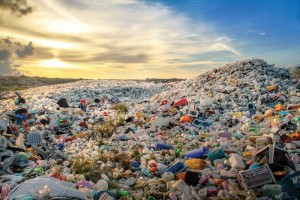From an Article by Jared Paben, Resource Recycling, October 21, 2020
Three virgin plastics companies recently announced developments in the area of chemical recycling. The following are summaries of the news from Chevron Phillips Chemical, SABIC and BASF.
Commercial-scale milestone: Chevron Phillips Chemical announced that it successfully completed its first U.S. commercial-scale production of polyethylene (PE) derived from chemically recycled mixed plastics.
“We are exceptionally proud to be the first company to announce production of a circular polyethylene on this scale in the U.S.,” Jim Becker, vice president of polymers and sustainability for the company, stated in a press release. “The successful production run marks a huge step for CPChem on our path to being a world leader in producing circular polymers.”
The company is now looking to scale up the use of the pyrolysis technology, as well as achieve certification for the new PE through the International Sustainability and Carbon Certification Plus (ISCC Plus) mass-balance methodology. Upon certification, Chevron Phillips Chemical intends to market the plastic under the trade name Marlex Anew Circular Polyethylene.
Recycled-content tube: Three companies are collaborating to bring chemically recycled plastic into beauty product packaging. Virgin plastics producer SABIC will supply recycled resin derived from post-consumer mixed plastics, part of the company’s TRUCIRCLE portfolio of chemically recycled polyolefins. Albéa will convert the plastic into tubes for Estée Lauder Companies (ELC) products; specifically, the tubes will hold Origins skincare brand products. According to a press release, the package is expected to hit store shelves in 2021.
In August, SABIC announced that its TRUCIRCLE recycled polypropylene (PP), produced via a pyrolysis process, was being used in Magnum brand ice cream tubs. Over 7 million of the recycled-content tubs are slated to be rolled out across Europe this year.
From tires to recycled plastics: BASF’s ChemCycling project has focused on using a pyrolysis technology to process difficult-to-recycle mixed plastics into chemicals for use in new plastics. Now, BASF is supporting the use of pyrolysis on scrap tires.
The global chemical company plans to invest 16 million euros (nearly $19 million) in Pyrum Innovations, a German company using pyrolysis on scrap tires. BASF plans to use the resulting pyrolysis oil to produce recycled-content plastic products for customers, alongside its existing recycled-content offerings derived from scrap plastics.
“With the investment, we have taken another significant step towards establishing a broad supply base for pyrolysis oil and towards offering our customers products based on chemically recycled plastic waste on a commercial scale,” Hartwig Michels, president of BASF’s Petrochemicals division, stated in a press release.
>>>>>>>>>>>>>>>>>>>>>>>>>>>>>>>
New plastic pyrolysis capacity planned in the United States
From an Article by Craig Bettenhausen, Chemical & Engineering News, Vol 98, Issue 27, July 10, 2020
Plants by Braven Environmental and Encina May take in a combined 225,000 metric tons of waste plastic per year
Two new plastic pyrolysis plants are in the works in the US that could add a new recycling option for plastic trash and increase the supply of some commodity chemicals.
In pyrolysis, a feedstock such as waste plastic is heated in a low-oxygen environment and, instead of burning, breaks down into a mix of simpler hydrocarbons. Tweaking the reaction conditions—such as temperature, pressure, or use of a catalyst—allows operators to get various product mixtures.
The pyrolysis firm Encina is finishing designs with engineers at Worley for a plant that will take in about 160,000 metric tons (t) of waste plastic per year and yield 90,000 t of BTX, a mixture of benzene, toluene, and xylenes normally produced from oil. The firms say the designs are modular, which will let them add capacity later. This will be Encina’s first plant, and founder David Schwedel says the company has four more in the planning stages globally.
Braven Environmental is planning a plant in central Virginia that will take in 65,000 t of plastic per year and produce 50 million L of a diesel-like hydrocarbon blend, according to Michael Moreno, the company’s chief operating officer. The $32 million plant will also produce syngas, which it will burn to fuel the process. The firm expects to create 52 permanent jobs at the site when it opens in mid-2021.
Environmental advocates debate the merits of pyrolysis, citing concerns about scalability, toxic by-products, and derailment of a transition away from single-use plastics. Promoters of such chemical recycling methods counter that they save energy and help keep plastics out of landfills and waterways.

